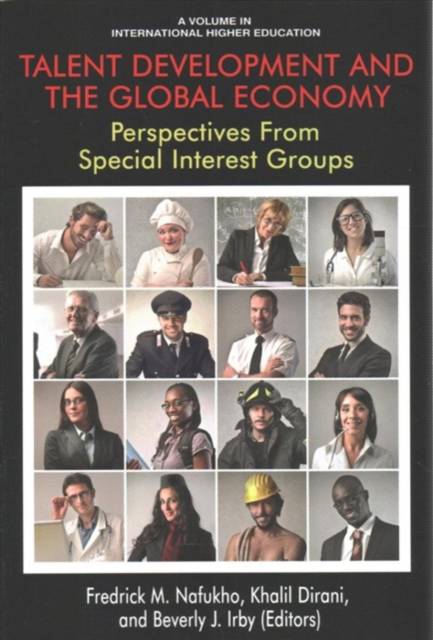
- Retrait gratuit dans votre magasin Club
- 7.000.000 titres dans notre catalogue
- Payer en toute sécurité
- Toujours un magasin près de chez vous
- Retrait gratuit dans votre magasin Club
- 7.000.0000 titres dans notre catalogue
- Payer en toute sécurité
- Toujours un magasin près de chez vous
Talent Development and the Global Economy
Perspectives from Special Interest Groups
Description
Talent has been identified as the only differentiator for an organization's, nations' or any region's success in this uncertain, complex, competitive and global environment. Ulrich (2008) defined talent as the equation of 3Cs: Talent = Competence x Commitment x Contribution. Malaeb and Chanaron (2010, p. 2), noted "Competence means that employees have the skills and abilities today and in the future for required business results. ... Commitment means that employees are involved and engaged ... while Contribution means that employees find personal abundance at occupation ..." While Ulrich (2008) observed that commitment focused on meaning and identity and other restraints that tap employee's heart. This book is unique in many ways, which makes it extraordinary. First, unlike other books that have examined issues of change facing the global economy no book has examined the issue of talent development from the perspective of special interest groups including management international students, women refugees, refugees, non-governmental organizations, for profit, for benefit and non-profit organizations. Thus, talent development world over has become one of the most important issues when it comes to developing human resources especially through education and training. The book presents pertinent research and practice on talent development management and argues that the term talent development broadly refers to management and development of high performing and high potential individuals in society required to carry out critical organizational and society roles aimed at improving human development. The contributors of the book chapters include individuals actively involved in research, teaching and practice in higher education and in business and industry. The chapters are based on empirical data, including review of relevant literature. The book also recognizes that talent development is more than just crisis management and includes best talent management practices, shared governance, meaningful reforms, strategic planning, transparency and accountability, social justice and respect for human life and the need to develop humane organizations and humane communities. The contributions take cognizance of the fact that talent development as a concept is facing fundamental changes in the global knowledge economy, and especially with political changes taking place world over. Contributors also take cognizance of the fact that one important source of change in society has been the accelerating speed of scientific and technological advancement driven by the power of the Internet hence the need to develop talent for the 21st century and beyond. The book is basically an academic book for use by undergraduates and graduate students at universities, for-profit, for-benefit, and non-profit organizations, policy makers and formulators in ministries of Education; supra national organizations, foreign organizations multilateral organizations, non-governmental organizations, community based organizations as well as development stakeholders, and community organizers.
Spécifications
Parties prenantes
- Editeur:
Contenu
- Nombre de pages :
- 192
- Langue:
- Anglais
- Collection :
Caractéristiques
- EAN:
- 9781681239972
- Date de parution :
- 30-08-17
- Format:
- Livre broché
- Format numérique:
- Trade paperback (VS)
- Dimensions :
- 156 mm x 234 mm
- Poids :
- 276 g

Les avis
Nous publions uniquement les avis qui respectent les conditions requises. Consultez nos conditions pour les avis.





